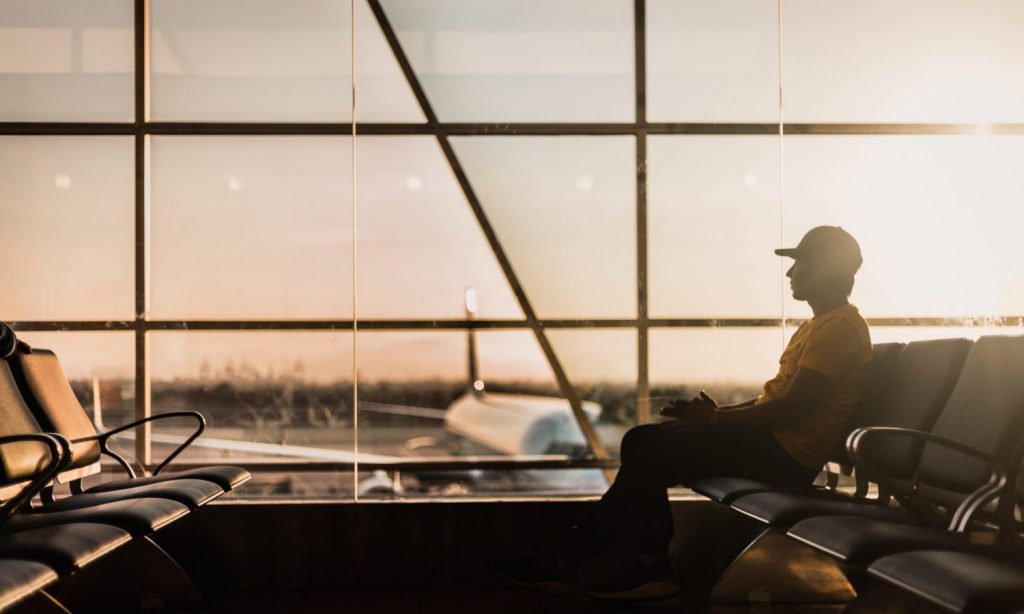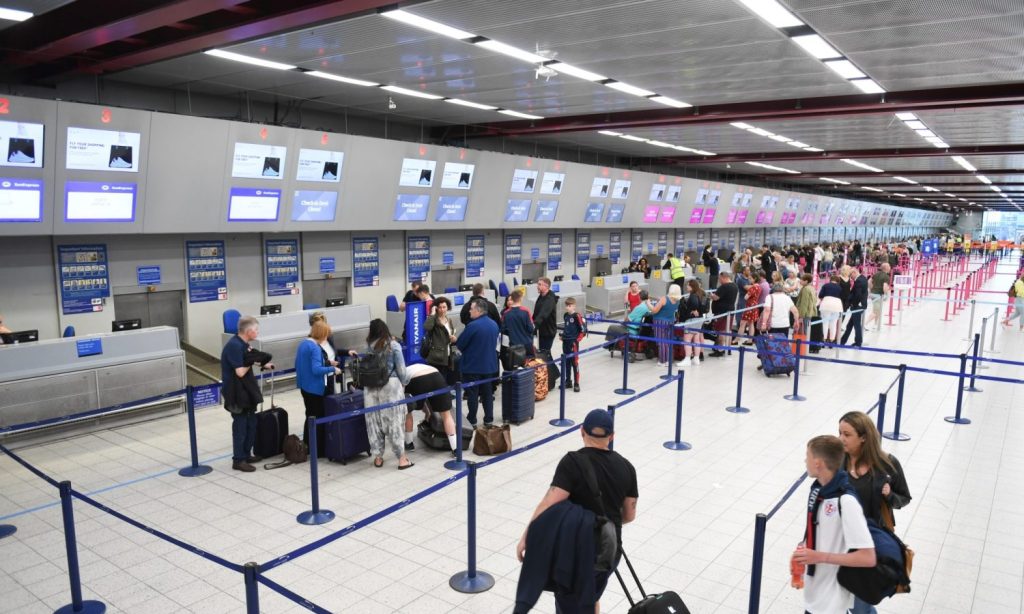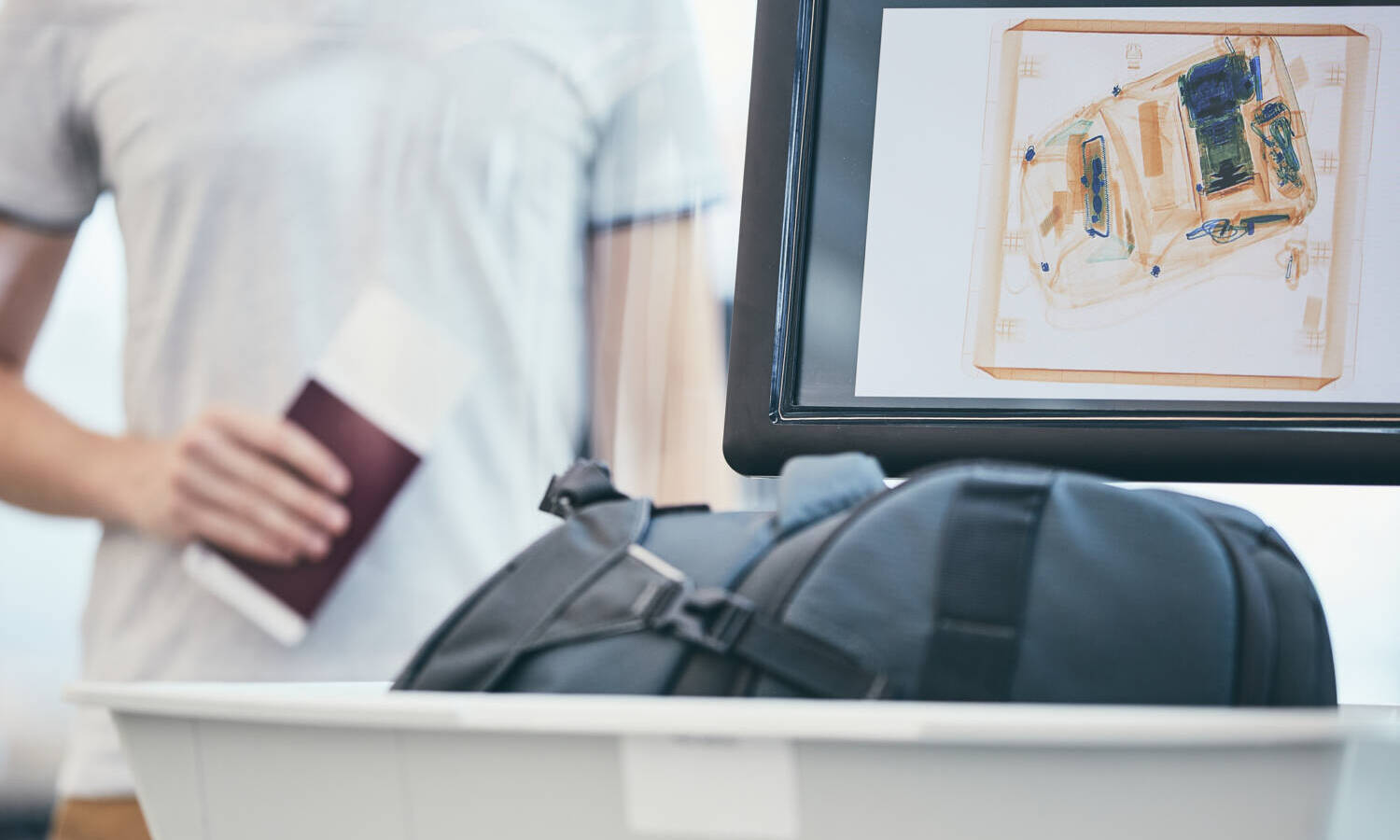Not only do states have different laws, but some airports even have different policies when it comes to marijuana and the TSA.
It seems like every few months there is an entirely new rulebook for marijuana. Where it is legal, how much you can possess, where you can smoke it and where you can bring it vary greatly and change frequently throughout the country.
When you purchase cannabis legally in the United States you might think you are in the clear when you bring it with you to the airport. Before you enter the TSA line, however, you should consider marijuana laws, and also who owns the airspace you are about to travel through. Understanding the laws and policies surrounding THC and the TSA can save you from a big headache, a bigger fine and even a criminal record.
Recreational Marijuana
So far, 18 states have legalized marijuana for recreational use. Each state has different rules on how and where you can consume marijuana. When you fly in an airplane, however, you leave state territory and enter federal jurisdiction. Marijuana is still completely banned as a schedule I substance on the federal level. This means traveling on an airplane with recreational marijuana is illegal.

“The airspace you’ll be traveling through is considered federal territory; hence, why it can’t come on your flight,” according to The Washington Post. “That includes flying within states where pot use is legal, or flying between states — even if both allow it for recreation.”
Although it is illegal to take recreational marijuana on an airplane, TSA has taken a surprisingly chill stance on cannabis. TSA posted a very direct public service announcement of sorts on Instagram on the matter of traveling with cannabis, stating, “Let us be blunt: TSA officers DO NOT search for marijuana or other illegal drugs. Our screening procedures are focused on security and detecting potential threats.”
This stance may seem rather liberal, but the TSA has made it clear they are looking for safety threats, not marijuana.
However, they also include verbiage that you should take note of if you are considering the risk of bringing marijuana through airport security. The TSA website states, “TSA security officers do not search for marijuana or other illegal drugs, but if any illegal substance is discovered during security screening, TSA will refer the matter to a law enforcement officer.”
Medical Marijuana
You may think medical marijuana holds more legal legitimacy. After all, a prescription is required from a doctor, and medical marijuana has been approved for a variety of medical conditions. Heck, the FDA has even approved medications derived from cannabis.
Medical marijuana is, however, still illegal on the federal level. You may find a bit more leniency if you are caught with medical marijuana and present a medical card versus getting busted with recreational pot, but don’t bank on it.
RELATED: What TSA Would Do If You Got Caught With Marijuana
As stated by The New York Times, “if you don’t know the rules, traveling with medical marijuana could lead to an arrest or at the very least, a complicated legal gray area.”
You should also check with your airline if you intend to travel with medical marijuana. Several airlines, including Delta Airlines and American Airlines have openly banned medical marijuana from their planes.

CBD
CBD has grown wildly in popularity in the last few years, and has become the natural go-to remedy for many looking to decrease anxiety. Anxiety and flying often go hand-in-hand so it is no surprise that many passengers seek to travel with CBD in their carry on.
RELATED: TSA (Sort of) Allows (Some) Hemp-CBD Products on Flights
CBD is legal to travel with throughout the United States, with some exceptions. According to TSA policy, “Cannabidiol (CBD) oil, remain illegal under federal law except for products that contain no more than 0.3 percent THC on a dry weight basis or that are approved by FDA.”
This means you should only bring CBD products that are THC free. When in doubt, bring an FDA approved (and labelled) product through TSA to avoid any confusion at the security checkpoint.
Beware Of The Gray Area
“There are all kinds of mixed messages being sent, but that’s because we have mixed messages in the legal system,” David Bannard, an attorney with Kaplan Kirsch & Rockwell LLP in Boston, who consults with airports on marijuana and other regulatory issues told Forbes.
When it comes to TSA and marijuana, there is a lot of gray area. Not only do states have different laws, but some airports even have different policies when it comes to marijuana and the TSA. Because of this mixed bag of policies, it is always important to know and follow the exact laws wherever you are.


